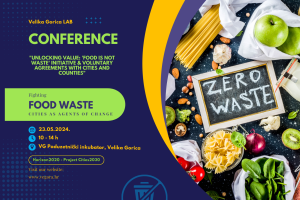Type of Dialogue
Convened by
Language of Dialogue Event
Date/time
To:
City
Geographical focus
Format
Please review the details below for registration information if available or contact the Convenor if you would like to attend.
Curator
Description
“Food is Not Waste” is an initiative that reframes surplus food as a valuable resource rather than disposable. It promotes sustainable practices throughout the food supply chain to minimize waste and maximize the utilization of food resources. The initiative aims to revolutionize our approach to food consumption, emphasizing sustainability, efficiency, and responsible management.
In Croatia, the Ministry of Agriculture leads the charge with the “Food is Not Waste” initiative, reshaping perceptions of excess food. Through voluntary agreements, cities and counties join forces with businesses to adopt sustainable practices, minimizing waste throughout the supply chain. These agreements foster collaboration, innovation, and shared learning among stakeholders. By embracing these initiatives, cities and counties enhance their reputation, mitigate risk, and capitalize on emerging market trends. Together, we’re redefining waste, unlocking new opportunities for prosperity and sustainability.
The first part of the conference will focus on the “Food is Not Waste” project and the initiative to sign the Voluntary Agreement. We aim to organize the signing of the Voluntary Agreement between the Ministry and the City of Velika Gorica during this occasion. In addition to the Ministry’s presentation of the Agreement and the “Food is Not Waste” project, we also wish for the City of Zagreb and Zagreb County, as signatories of the agreement, to present their experiences and planned activities.
The second part of the conference will address the role of Local and Regional Authorities (LRAs) in establishing a quality monitoring system and structuring the food system, with examples from Europe and an overview of the Milan Urban Food Policy Pact (MUFPP) and its methodology. As the City of Zagreb is a signatory of the MUFPP, we believe this is a good opportunity to introduce other cities, especially those in counties that, due to size provisions, cannot independently sign the pact, to numerous practical and applicable solutions and encourage collaboration among cities on this basis.
Acknowledgement


